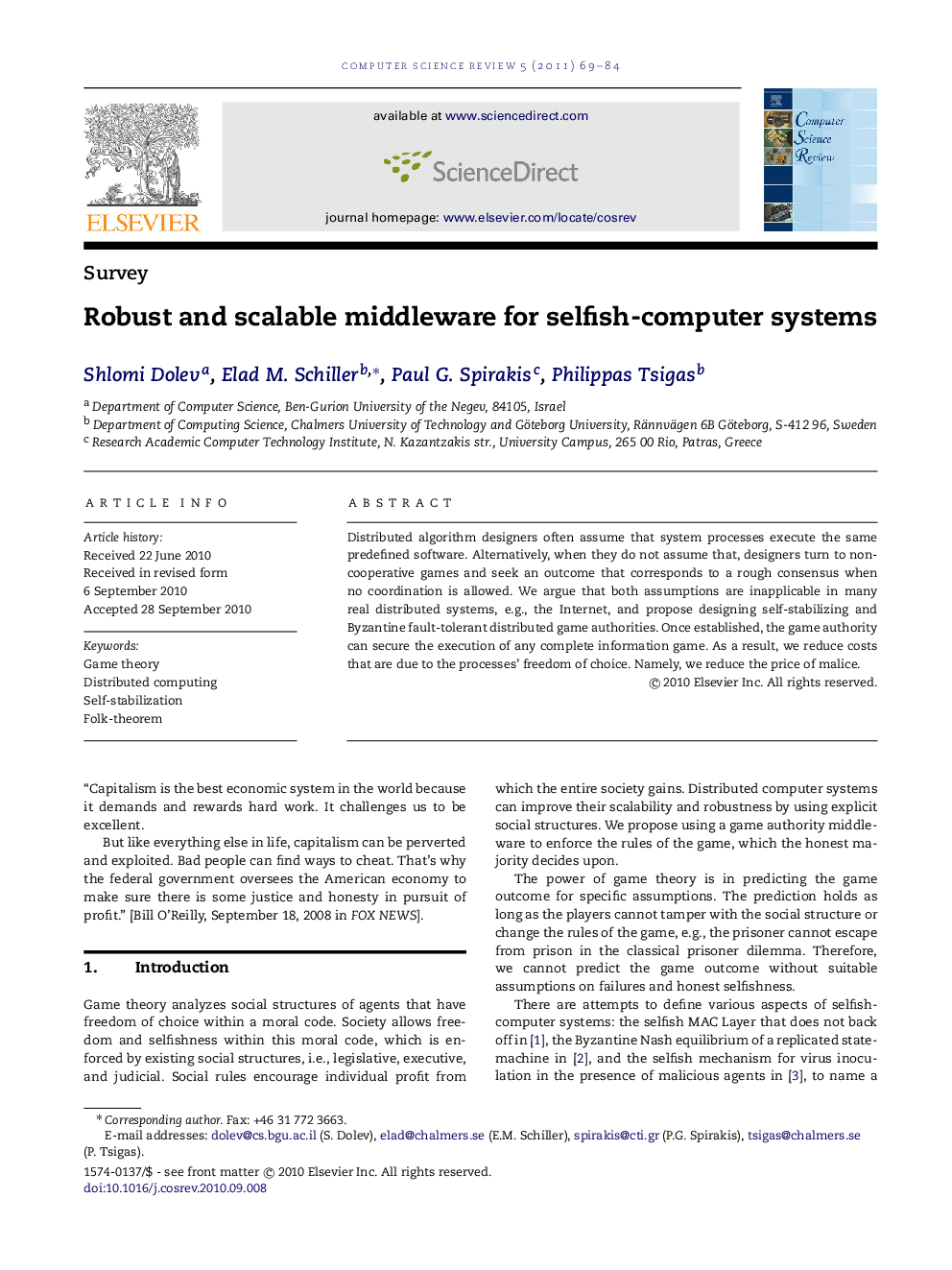| Article ID | Journal | Published Year | Pages | File Type |
|---|---|---|---|---|
| 471535 | Computer Science Review | 2011 | 16 Pages |
Abstract
Distributed algorithm designers often assume that system processes execute the same predefined software. Alternatively, when they do not assume that, designers turn to non-cooperative games and seek an outcome that corresponds to a rough consensus when no coordination is allowed. We argue that both assumptions are inapplicable in many real distributed systems, e.g., the Internet, and propose designing self-stabilizing and Byzantine fault-tolerant distributed game authorities. Once established, the game authority can secure the execution of any complete information game. As a result, we reduce costs that are due to the processes’ freedom of choice. Namely, we reduce the price of malice.
Related Topics
Physical Sciences and Engineering
Computer Science
Computer Science (General)
Authors
Shlomi Dolev, Elad M. Schiller, Paul G. Spirakis, Philippas Tsigas,
